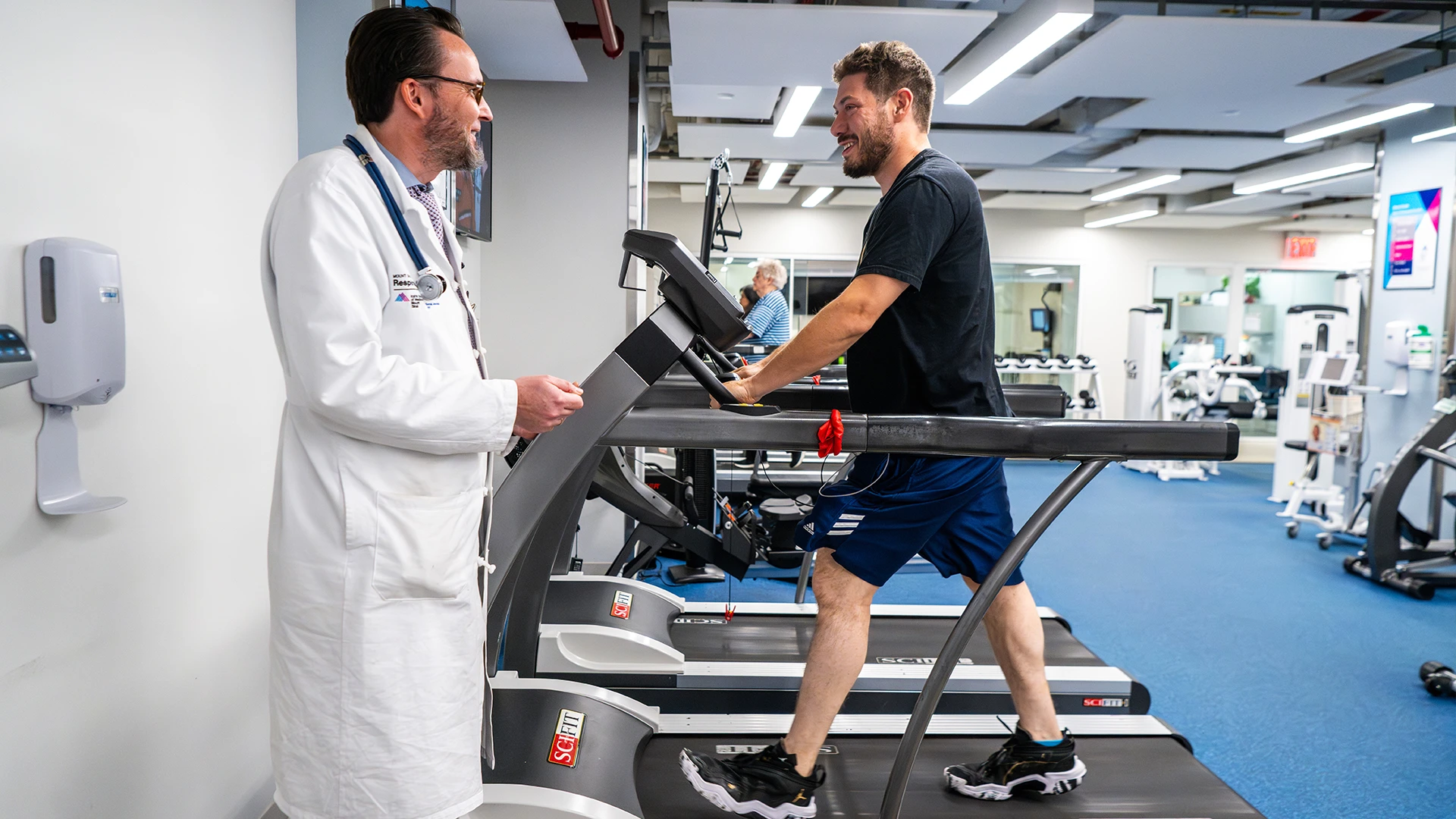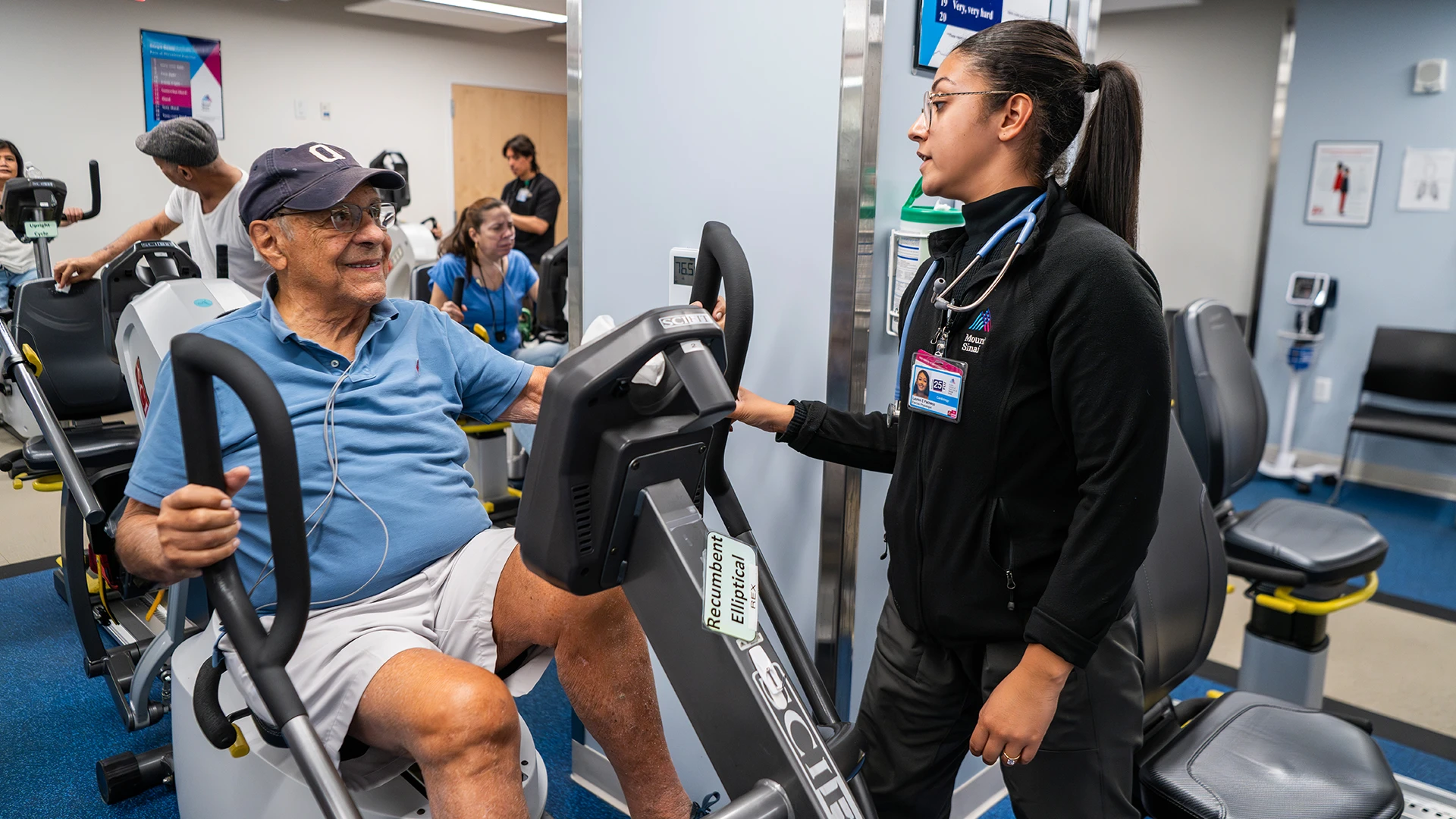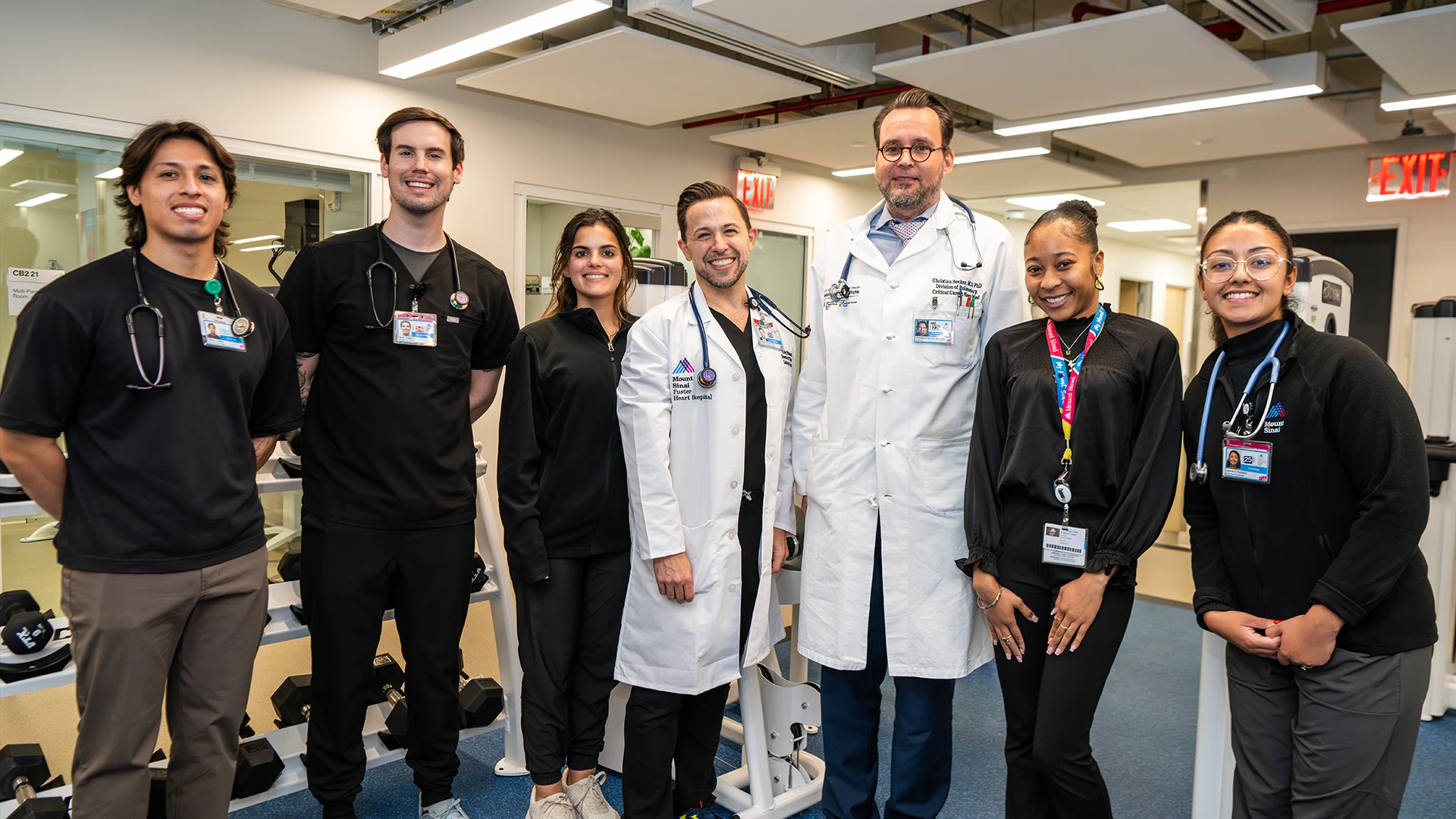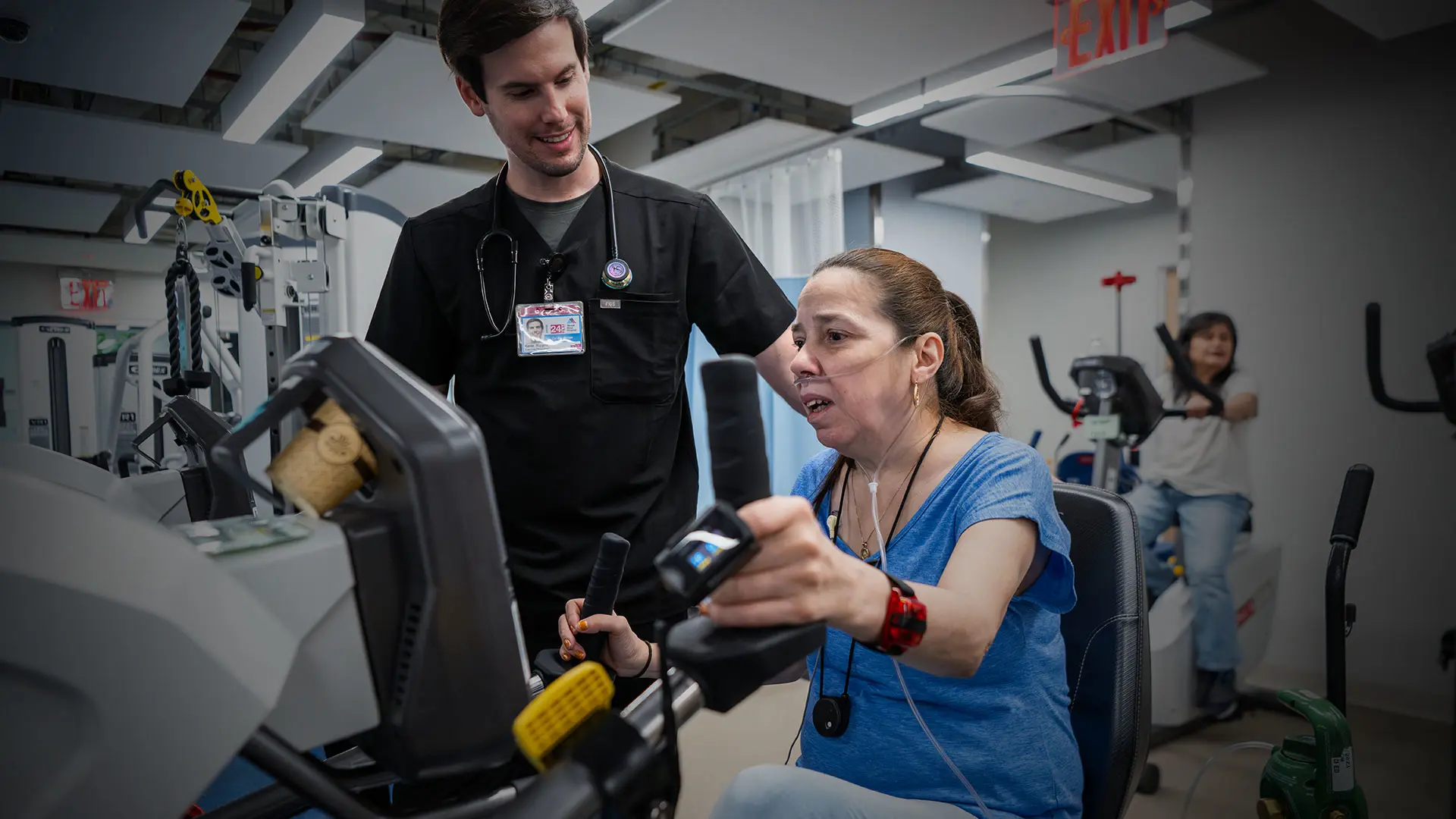Clinical evidence has demonstrated that pulmonary rehabilitation offers significant health benefits for people with chronic lung disease, often proving to be a more effective modality than medication. Yet rehab for individuals with conditions such as chronic obstructive pulmonary disease, pulmonary hypertension, interstitial lung disease, pulmonary fibrosis, and sarcoidosis can be a challenge for both patient and provider.
The obstacles include patients’ inability to complete often rigorous regimens, transportation issues, lack of perceived benefits, and high operational costs. Together, they have resulted in a sparse landscape of pulmonary rehabilitation clinics.
Hoping to change that, Mount Sinai Health System recently opened a comprehensive pulmonary rehabilitation program at The Mount Sinai Hospital campus in tandem with the Mount Sinai – National Jewish Health Respiratory Institute. Co-located with the hospital’s well-established Cardiac Rehabilitation Program, the new pulmonary initiative is geared to patients with exercise limitations attributable to the lung or other organs. It offers them 8 to 12 weeks of muscle strengthening, helpful breathing techniques, education, nutritional support, and lifestyle changes. It also provides ongoing feedback from a team of highly skilled pulmonologists, a pulmonary physical therapist, pulmonary exercise physiologists, nurses, respiratory therapists, and a care coordination team.
“The program is a terrific asset for a large pulmonary center such as ours to have,” says Christian Becker, MD, PhD, Professor of Medicine (Pulmonary, Critical Care and Sleep Medicine) at the Icahn School of Medicine at Mount Sinai, and Medical Director of the pulmonary rehabilitation program. “Our goal is to help patients make the best use of their lungs, which means increasing their stamina and ability to walk farther, feel stronger, and be more active throughout the day. Everybody is very excited about this program, particularly patients who have shown a tremendous amount of motivation and eagerness to work with our professional staff to enhance their overall quality of life.”

Dr. Becker with a patient in Mount Sinai's pulmonary rehabilitation program

Exercise physiologist Lauren Pacheco helps a patient exercise in the rehab center
The first group of six patients began in July 2024, and the program is growing quickly. The program collaborates with the Cardiac Rehabilitation Program run by Mount Sinai Fuster Heart Hospital, sharing the same space and oftentimes the same staff and equipment. Indeed, the synergies between the two cohorts are clear since many patients in pulmonary rehab also receive follow-up treatment for heart disorders—including coronary artery disease, congestive heart failure, and angina—or have experienced a heart attack, stroke, or heart transplant.
Supporting the new clinic is one of the country’s top-ranked programs for diagnosing and treating lung disease based at Mount Sinai. Specialized services include lung nodule evaluation and management, incidental lung nodule detection, and advanced pulmonary function testing, all within the framework of an affiliation with Denver-based National Jewish Health, the nation’s leading respiratory hospital.
The rehab center fits comfortably within that clinical and academic setting, offering lung disease patients a highly structured program consisting of twice-a-week sessions of up to an hour and a half apiece over two to three months. Following an intake visit that establishes a baseline, a detailed treatment plan is developed and tailored to the needs and capabilities of each patient. One-on-one and supervised group instruction is focused on areas such as using the lungs to strengthen the body’s breathing apparatus, proper coughing techniques, and ensuring correct use of inhaler medications.
To address the challenge that participants may feel they’re not making progress, the program plans to start offering a virtual rehab component for participants who have completed the program. This component will include feedback on the progress they’ve made and how to maintain their gains, as well as answering any questions they may have. A social worker shared with the Cardiac Rehabilitation Program is available to help participants address other issues, including food security and transportation.
“By the end of the program, we want patients to feel they’re breathing easier and are able to be more active with less shortness of breath,” explains Dr. Becker, who first came to Mount Sinai in 2005 as a fellow in pulmonary and critical care medicine. “Our longer-range plans are to start doing research on topics related to pulmonary rehabilitation, and to make our clinic a comprehensive referral center for a wide range of pulmonary diseases and important issues affecting them.”

From left: Adrian Andino, Exercise Physiologist; Kevin Riggins, Exercise Physiologist; Abby Pasquale, Senior Exercise Physiologist; Craig Feinman, DPT, Board Certified Pulmonary Physical Therapist and Director of Clinical Operations; Dr. Becker; Destinee Howai-Cameron, Care Coordination Associate; Ms. Pacheco
